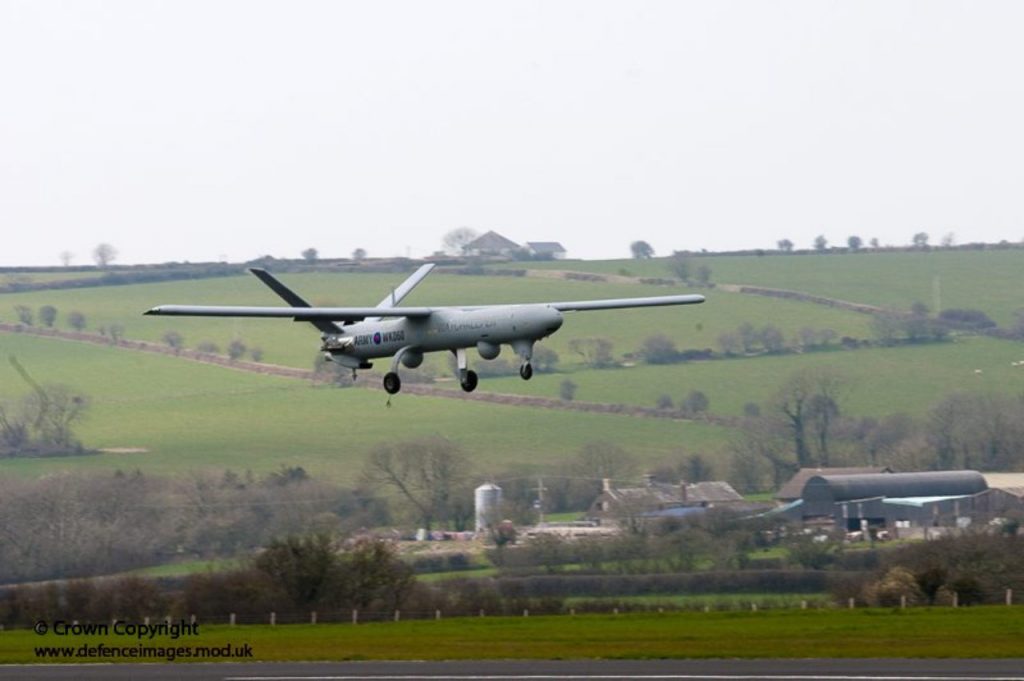
Under scrutiny: The Watchkeeper surveillance drone, on its maiden UK flight. (Photo: Defence Images)
Members of parliament Tom Watson and Zac Goldsmith are to lead a new parliamentary group set up to scrutinise the rapid spread of drones both on the battlefield and in civilian life.
The All-Party Parliamentary Group on Drones launched yesterday, with Labour MP Watson appointed as president and Conservative Zac Goldsmith as a vice president.
Clive Stafford Smith, director of legal charity Reprieve, told the politicians the US’s current use of drones in Pakistan, Yemen and Somalia amounts to ‘death penalty without trial’. He added: ‘We sleepwalked into a nuclear age, now we are sleepwalking into a drone age.’
He pointed to significant questions over the legal framework for such campaigns – as well as the secrecy over who is killed and whether they inspire extremism.
The UK currently flies five models of armed drone and has carried out 319 strikes in Afghanistan since 2008
And while reporting on drones tends to focus on the US’s covert campaigns, Chris Coles of Drone Wars UK highlighted research showing that 76 countries currently possess some form of unmanned aerial vehicle (UAV), however rudimentary – including Botswana, Panama and Lithuania.
Related story – Where’s all the money gone? How the UK spent £2bn on drones
The UK currently flies five types of drone, although only one model, the Reaper, is armed. It has carried out 319 strikes in Afghanistan since 2008, Coles added, with British pilots flying from the US drone base at Creech, Nevada. And in the final day of the last parliamentary session, the government quietly admitted it had also flown drone missions in Libya, despite previously insisting it had only flown drones in Afghanistan.
Drones are set to become increasingly prominent beyond the battlefield – but the legal framework for using them in civilian airspace remains problematic, politicians heard. At present it’s perfectly legal to fly your own drone, such as the £300 iPad-controlled Parrot, to within 150ft of your friends and neighbours.
Related story – Details of 99 UK drone strikes in Afghanistan revealed
Neither the Civil Aviation Authority or Astraea, the industry-led programme that aims to establish guidelines for civil use of drones, has shown much appetite for grappling with the privacy implications of this, Coles added. And new laws are expected to open up the UK’s skies for commercial drones in the next decade.
Watson told the Bureau the new group will meet an important need. ‘Drones herald a new era in military technology, and they require parliamentarians to consider all the policy implications, both internationally and domestically,’ he said.